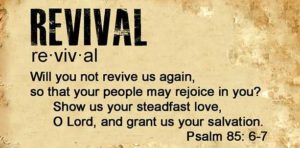 Joshua has had quite a life! He has proved to be faithful to the Lord’s command. In chapter 13, he is somewhere between 90 and 100 years old.
Joshua has had quite a life! He has proved to be faithful to the Lord’s command. In chapter 13, he is somewhere between 90 and 100 years old.
His comrade-in-faithful obedience, Caleb, is now 85 and feeling as fit as he was when he was 40 (Joshua 14:11). Caleb is still demonstrating victorious faith. He is willing to take the high ground and face the challenges of the remaining giants in the land (the Anakim). He does not ask for an easy task. He asks for a God-glorifying task. He asks for the hill country. It was his inheritance.
 Both Joshua and Caleb express confidence in the Lord. Listen to Caleb speak about how he wanted to spend his ‘senior years’:
Both Joshua and Caleb express confidence in the Lord. Listen to Caleb speak about how he wanted to spend his ‘senior years’:
Joshua 14:12 12 “Now then, give me this hill country about which the LORD spoke on that day, for you heard on that day that Anakim (giants) were there, with great fortified cities; perhaps the LORD will be with me, and I will drive them out as the LORD has spoken.”
Joshua gave Caleb Hebron (meaning alliance or fellowship) for an inheritance. Hebron used to be named after ‘Arba’ the greatest man among the Anakim. It was once the city of a giant enemy. It is now a place of fellowship for the man known for following the Lord wholeheartedly.
Joshua 14:14 14 Therefore, Hebron became the inheritance of Caleb the son of Jephunneh the Kenizzite until this day, because he followed the LORD God of Israel fully.
But the real focus in these chapters is not the faithfulness of Joshua and Caleb but God’s faithfulness to His Word.
Joshua was a great leader. The key to his greatness as a leader was that he was well-led. The Lord faithfully gave instruction, counsel, strength, and a team of people united in purpose. He orchestrated the victories. He gave the victories.
I love the fact that the Lord gave Joshua his daily “TO DO” list. The initial campaign was over, but more work remained, and more territory remained to be taken (Joshua 13:1).
I wonder if we too easily rest in yesterday’s accomplishments and settle for the status quo instead of inquiring of the Lord to see if there is some further work that He would have us do?
It is important that we learn to inquire of the Lord what work remains on His heart. How does He see things in our neck of the woods?
 The Lord gave Joshua a detailed project list, outlining the full extent of territory that remained to be taken. It makes me think of the unfinished work of world evangelization and the remaining gospel work in the various spheres closer to home: marriage, family, our community, our region, our country, and continent. The crucified and risen Jesus gave this command to His followers:
The Lord gave Joshua a detailed project list, outlining the full extent of territory that remained to be taken. It makes me think of the unfinished work of world evangelization and the remaining gospel work in the various spheres closer to home: marriage, family, our community, our region, our country, and continent. The crucified and risen Jesus gave this command to His followers:
Matthew 28:19-20 19 “Go therefore and make disciples of all the nations, baptizing them in the name of the Father and the Son and the Holy Spirit, 20 teaching them to observe all that I commanded you; and lo, I am with you always, even to the end of the age.”
The Lord wants to make sure that Joshua settles for nothing less than what He has allotted to Israel as an inheritance (Joshua 13:6-7).
As we have already noted in our journey through the Bible, the tribe of Levi did not receive an inheritance of land on which to grow food. They received 48 cities without fields (Joshua 14:3). The Lord Himself, the service of the tabernacle, and the offerings made by fire would be their inheritance (Joshua 13:14). The Lord would provide for their food, housing, and clothing through the tithes of the other tribes (Deuteronomy 10:9; 12:11-12; Numbers 18:21-24).
Sadly, it is true that we are prone to settle for less than that which is allotted for in the revealed will of God. Let us be diligent in possessing our possessions and fulfilling our mission!
The chapter concludes with these words: “Then the land had rest from war.” (Joshua 14:15b)
TODAY’S READING FROM THE NEW TESTAMENT – LUKE 18:1-17
BE PERSISTENT IN PRAYER
Jesus gives an unforgettable picture of the need to persist in prayer and the prayerful pursuit of justice.
 Once again, Jesus gives a comical commentary on human behavior while illustrating an important spiritual principle. He uses a slice of life we may all be familiar with- our courts of law with human judges, lawyers, plaintiffs and, defendants in order to teach that we ought always to pray and never give up.
Once again, Jesus gives a comical commentary on human behavior while illustrating an important spiritual principle. He uses a slice of life we may all be familiar with- our courts of law with human judges, lawyers, plaintiffs and, defendants in order to teach that we ought always to pray and never give up.
He affirms human depravity when he speaks of a judge who neither feared God nor respected man. No wonder the common people heard Jesus gladly. But his satirical commentary on human nature is not limited to the rich and powerful. He speaks of seemingly good parents as being by nature ‘evil’ (Matthew 7:11; Luke 11:13), employees who are as dishonest and crooked as their employers (Luke 16:1-13), and close friends that really don’t like to be bothered when they have genuine needs (Luke 11:5).
Jesus gives the account of a widow, who in Jesus’ day could credibly be left in dire straits if she is suddenly deprived of the income of her husband, now deceased. The human judge finally gives in to the widow’s persistent nagging, not because he sees any legal reason not to side with the adversary, not because he fears God or because he has any interest or compassion on the widow’s situation, but merely to get the woman off his back, he gives in to her request.
Jesus contrasts the unjust judge who is slow to give justice with God the father who will bring justice speedily. This parable is not only given to encourage God’s elect to persevere in prayer but also to be living in such a way that we are not ashamed when the Son of Man arrives to bring true justice and affirm genuine faith.
Luke 18:7-8 7 And will not God give justice to his elect, who cry to him day and night? Will he delay long over them? 8 I tell you, he will give justice to them speedily. Nevertheless, when the Son of Man comes, will he find faith on earth?” (ESV)
THE WAY TO BE JUSTIFIED BEFORE GOD- A HUMBLE APPEAL TO GOD’S MERCY GIVEN THROUGH HIS PERFECT WORK OF REDEMPTION
 Jesus’ parable of the Tax Collector and the Pharisee exposes the peril of those who think they are justified before God on the basis of their own righteousness. Our own brand of righteousness falls infinitely short of God’s minimum standard of righteousness, which is the righteousness that is found in Himself, absolute righteousness.
Jesus’ parable of the Tax Collector and the Pharisee exposes the peril of those who think they are justified before God on the basis of their own righteousness. Our own brand of righteousness falls infinitely short of God’s minimum standard of righteousness, which is the righteousness that is found in Himself, absolute righteousness.
The Pharisee is an example of someone who attempts to justify himself before God on the basis of his own good works: “God, I thank you that I am not like other men- robbers, evildoers, or even like this tax collector. I fast twice a week and give a tenth of all I get.”
But the tax collector stood at a distance, aware of the insufficiency of his own righteousness. He would not even look up to heaven, admitting his state of sinfulness before God and his desperate need to cast himself on God’s mercy. He beats his breast and says, “God, be merciful to me, a sinner.” Literally, “God be propitiated through your means of mercy”. The only means of God’s wrath against sin being turned away and God’s justice satisfied is through God’s own action- the shed blood of a perfect Substitute, Jesus Christ (Leviticus 17:11; Hebrews 9:22; 1 John 2:2).
Jesus makes it clear that it is the one who appeals to God’s mercy, the good news of Jesus’ perfect substitutionary sacrifice on their behalf, who will be justified before God.
It requires humility to repent of our own self-justification. Our assumed self-righteousness will not fly in the courts of heaven.
Those who exalt themselves will be humbled. Those who humble themselves admit their need for God’s mercy will be exalted.
The disciples of Jesus rebuked the people who were bringing their children to Jesus, but Jesus said that these children, who by nature recognize that their necessary provisions must come from outside themselves, illustrate the disposition necessary to enter the kingdom of God (Luke 18:15-17).
TODAY’S READING FROM THE BOOK OF PSALMS
PSALM 85:1-13.
The Psalmist cites before God the ‘gospel blessings’ shown to His people in the past (favor, forgiveness, and propitiation, the turning away of God’s fierce anger at their disobedience), and pleads that they would know these blessings today.
 This is a prayer for revival. Let us pray this regarding our own walk with God and on behalf of His people today.
This is a prayer for revival. Let us pray this regarding our own walk with God and on behalf of His people today.
Psalm 85:6-7 6 Will you not revive us again, that your people may rejoice in you? 7 Show us your steadfast love, O LORD, and grant us your salvation.
This reminds us that although the gospel promise of justification before God through faith in Christ is instant, the sanctification aspect of salvation is progressive. Are we experiencing the joy of our salvation- seeing God at work making us more like Jesus? Or are we seeing the folly of one who follows the ways of the old nature rather than the ways of the Holy Spirit?
The finished work of Christ is illustrated clearly in the King James version of Psalm 85:10.
10 Mercy and truth are met together; righteousness and peace have kissed each other.
Where else can the divine attributes of mercy and truth, righteousness and peace meet, but at the cross of Christ? Mercy and truth and righteousness and peace are incompatible couples when it comes to sinners coming into the presence of God. Mercy desires to give us access, but Truth recognizes that our sin separates us from God and must be paid for. Peace wants there to be no discord between humankind and God. But righteousness affirms God’s impeccable standards. God is light, and in Him, there is no darkness at all. Righteousness says that you cannot proclaim peace where there is no peace. God’s law must be satisfied.
 It is at the cross where mercy and truth, righteousness and peace, can meet with full satisfaction. It is there, at the cross, where Jesus satisfies all the demands of righteousness and truth, that mercy can flow to repentant sinners who look to Jesus the sinless Substitute. It is there, through the blood of his cross, that peace is made, and reconciliation takes place (Colossians 1:19-20).
It is at the cross where mercy and truth, righteousness and peace, can meet with full satisfaction. It is there, at the cross, where Jesus satisfies all the demands of righteousness and truth, that mercy can flow to repentant sinners who look to Jesus the sinless Substitute. It is there, through the blood of his cross, that peace is made, and reconciliation takes place (Colossians 1:19-20).
TODAY’S PROVERB- PROVERBS 13:7-8
Proverbs 13:7-8 7 There is one who pretends to be rich, but has nothing; Another pretends to be poor, but has great wealth. 8 The ransom of a man’s life is his wealth, But the poor hears no rebuke.
This proverb teaches us not to judge people by appearances, as the world is full of people pretending to be what they are not. An outward show of riches may deceive one to think that they are rich towards God and others. It does not disclose his or her true state of soul. A person who outwardly appears to have little may have great wealth, personal and relational satisfaction and an inner life that is full of peace and spiritual riches. On the other hand, some people’s poverty is due to their own negligence of responsibility and their stubborn refusal to receive counsel, whereas the diligent will have the necessary resources to deal with emergencies.
PRAYER: Father, we are so thankful for the rich inheritance you have given us in Christ. In Him, we have reconciliation-peace and fellowship with You through the Spirit. May we be relentless in our obedience as those who wholly follow our Lord Jesus. Keep us humble in our recognition of Your mercy towards us and persistent in our pursuit of Your will. May our intercession be directed by Your Spirit. Revive us again and keep us focused on Your steadfast love, in Jesus’ Name. Amen.
Pastor David
